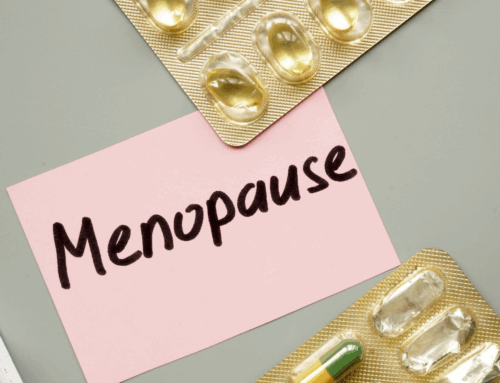It’s only natural when embarking on a weight loss journey—especially when taking weight loss medications—to wonder how the process may impact your health in other ways. One concern many doctors and patients have is whether weight loss will result not only in fat loss but also a loss of muscle. One thing is certain: muscle mass plays a vital role in metabolic health, supporting physical function, and enhancing your overall well-being. At Maryland Weight Care, our team prioritizes helping patients achieve balanced, sustainable weight loss while preserving and even building lean muscle.
Understanding How Weight Loss Medications Work
Weight loss medications including GLP-1 receptor agonists such as Ozempic/Wegovy or GLP-1/GIP receptor agonists such as Zepbound/Mounjaro help to regulate appetite and improve insulin metabolism, thereby helping people with fat loss. But here’s the thing: weight loss—regardless of the method used—can sometimes include a reduction in both fat and lean tissue like muscle and bone.
Recognizing this, Dr. Parisi and the Maryland Weight Care team work closely with patients to ensure that weight loss is not just about shedding pounds but maintaining a healthy body composition.
Can Weight Loss Medications Cause Muscle Loss?
Weight loss medications themselves don’t directly cause muscle loss. However, losing weight too quickly without taking measures to preserve muscle mass can sometimes lead to muscle reduction in conjunction with fat loss. Muscle mass may decrease if the body isn’t receiving adequate protein and resistance training to support its retention.
For patients on weight loss medications, we emphasize maintaining a balanced diet with adequate protein tailored to their age and staying active through a combination of strength training and cardio to promote muscle preservation. While on weight loss medications, it can sometimes be challenging to eat enough protein, which is why it’s all the more important to troubleshoot with a professional to make sure you are reaching your nutritional goals.
It can also be valuable to track your muscle mass during the weight loss process using methods such as a bioelectrical impedance scale or a DEXA scan (which is more accurate but also more expensive and less readily available).
Why Muscle Retention Matters for Sustainable Weight Loss
Muscle plays a significant role in supporting metabolic rate—meaning it helps you burn calories more efficiently. Weight loss slows down your metabolism. Preserving muscle not only assists with healthy metabolism but also boosts physical function and strength.
The Role of Muscle in Metabolic Syndrome and Insulin Resistance
Healthy muscle mass does more than simply support physical function; it also plays a critical role in metabolic health. Muscle tissue helps regulate blood sugar by improving insulin sensitivity, reducing the risk of metabolic syndrome (a collection of health issues increasing one’s risk for heart disease, diabetes, and strokes).
Losing muscle mass can disrupt this balance. Maintaining and even building lean muscle during weight loss is essential to reduce the risk of these metabolic challenges and support your overall health.
Incorporating Protein-Rich Foods for Muscle Health
Protein is a fundamental component of muscle maintenance. Foods rich in high-quality protein supply essential amino acids that the body uses to repair and build muscle tissue. Incorporating protein into your diet can also enhance satiety, reducing hunger and helping you stay on track with your weight loss goals.
Examples of protein-rich foods include:
- Lean meats like chicken, turkey, and lean cuts of beef or pork.
- Plant-based options like lentils, chickpeas, tofu, and edamame.
- Eggs and dairy products such as Greek yogurt, cottage cheese, and eggs.
- Seafood options such as salmon, tuna, and shrimp.
At Maryland Weight Care, we help patients incorporate these nutrient-dense foods into their meal plans, adjusting for dietary preferences and restrictions.
Different Types of Resistance Training
Strength training is critical for preserving and building muscle mass, but resistance training options differ. Incorporating a variety of methods ensures balanced muscle engagement and reduces the risk of overuse-related injuries.
- Weight lifting: Using free weights or machines helps target specific muscle groups for growth and strength.
- Bodyweight exercises: Moves like push-ups, squats, and planks are accessible and effective for building functional strength.
- Resistance bands: These are portable and versatile tools for adding controlled resistance to your workouts.
- High-intensity interval training (HIIT): Combining bursts of cardio with resistance exercises can improve both cardiovascular health and muscle retention.
At Maryland Weight Care, we encourage patients to find resistance training activities they enjoy, making it easier to stay consistent while achieving their weight loss and muscle preservation goals.
Dr. Parisi and her team take a comprehensive approach, incorporating dietary guidance, exercise recommendations, and professional support to help you stay healthy and strong.
Balancing Medication with Lifestyle Changes for Best Results
Weight loss medications are an effective tool for supporting weight management, but they work best alongside lifestyle adjustments. A balanced diet, regular exercise, and adequate rest can all make a difference in preserving muscle while achieving sustainable weight loss.
Schedule your free discovery call today with Dr. Parisi to learn more about our holistic approach to weight loss and how we can create a plan tailored to your unique needs.





